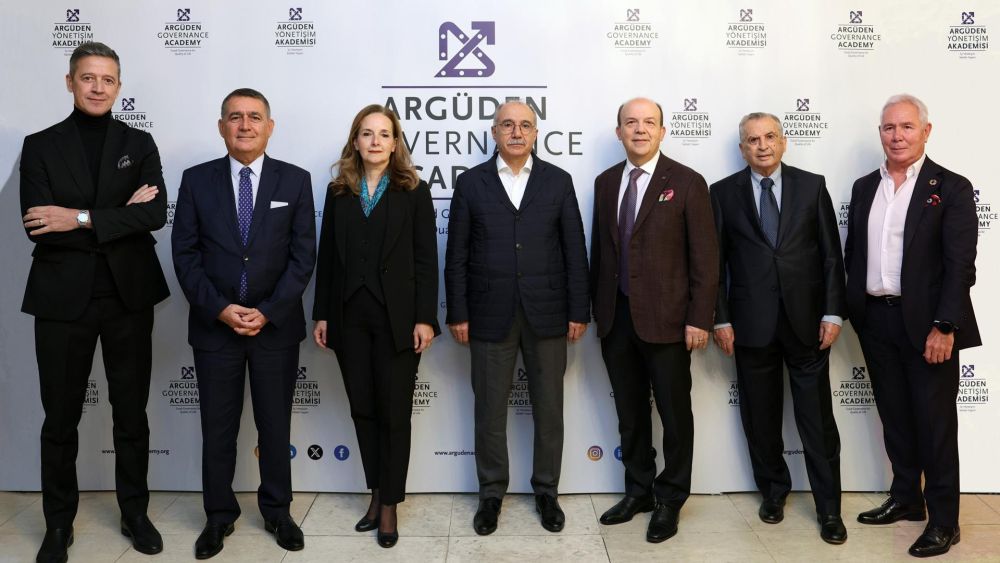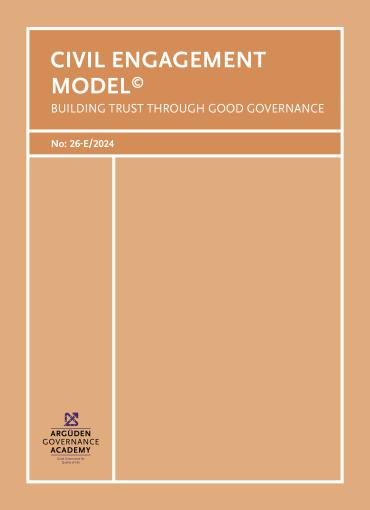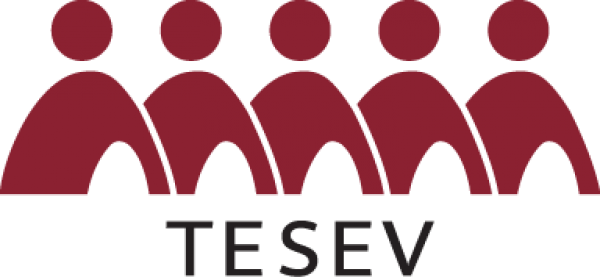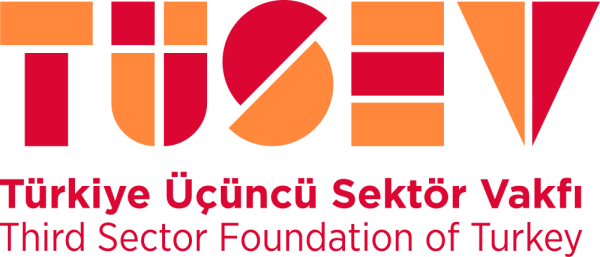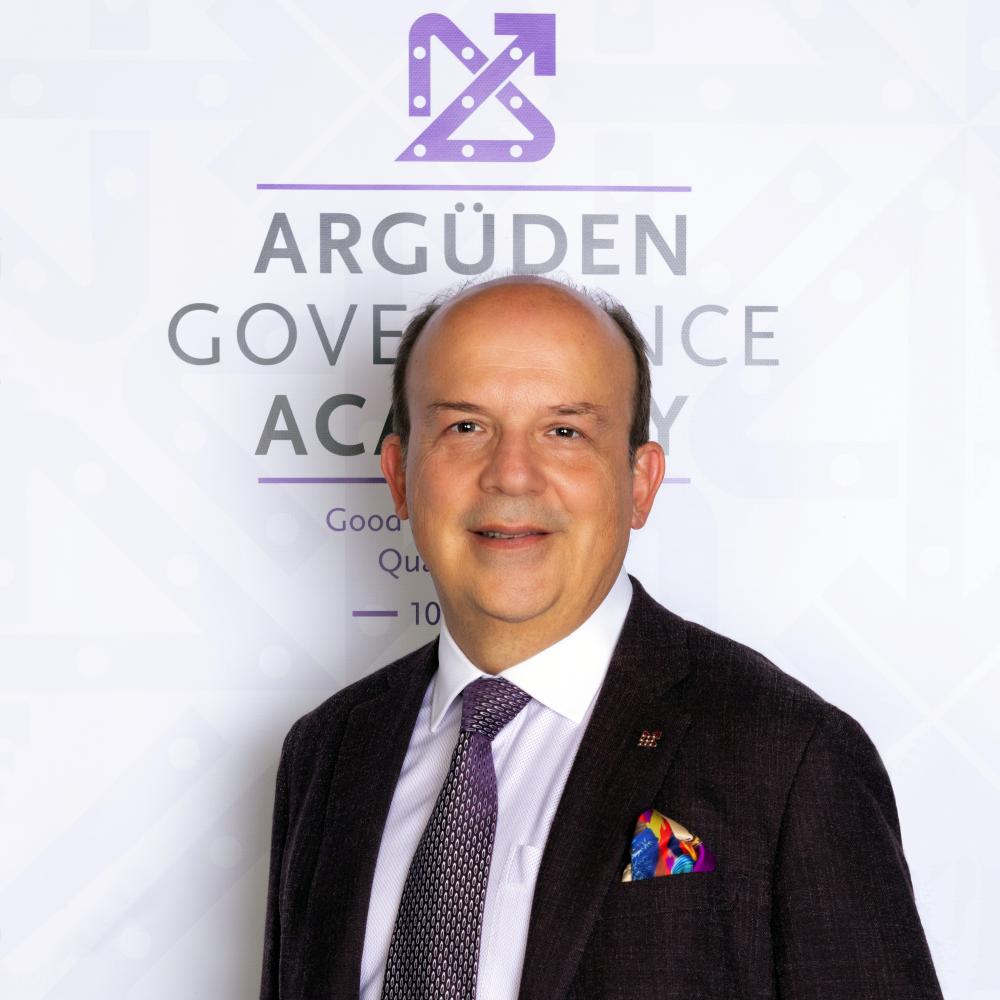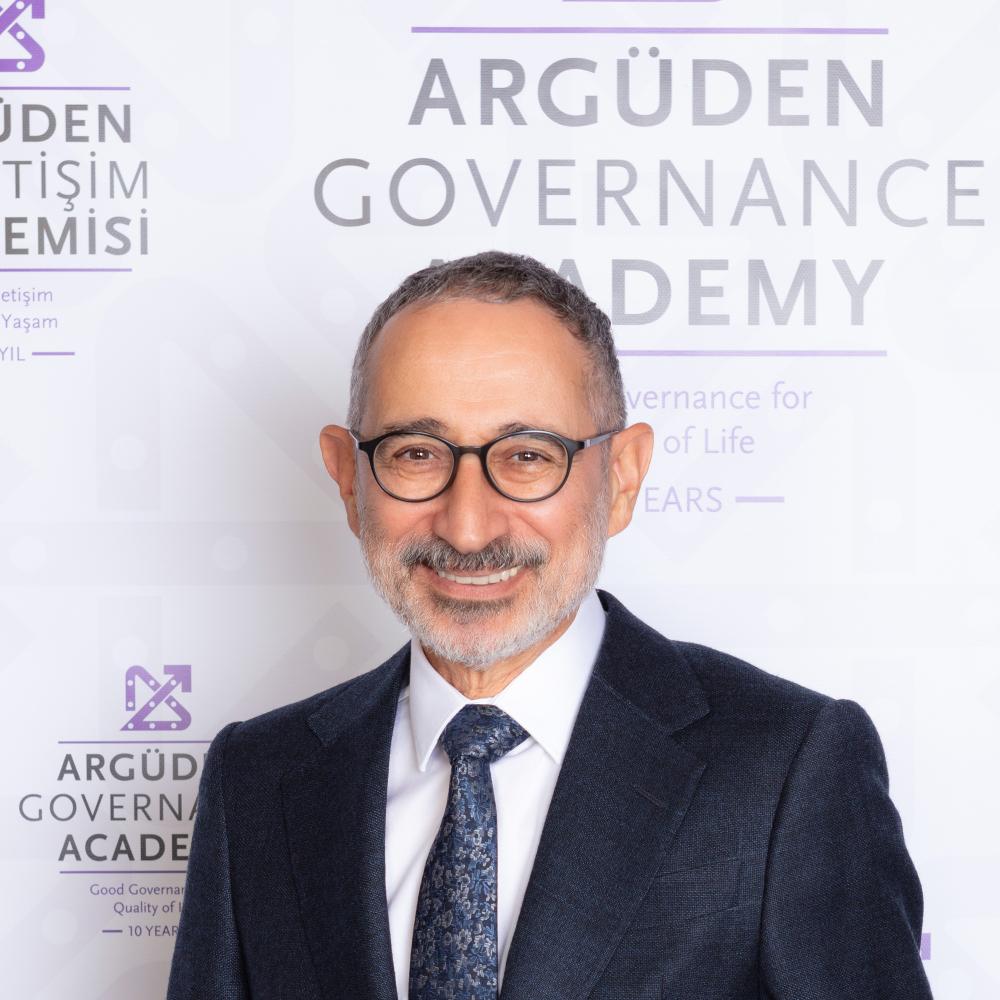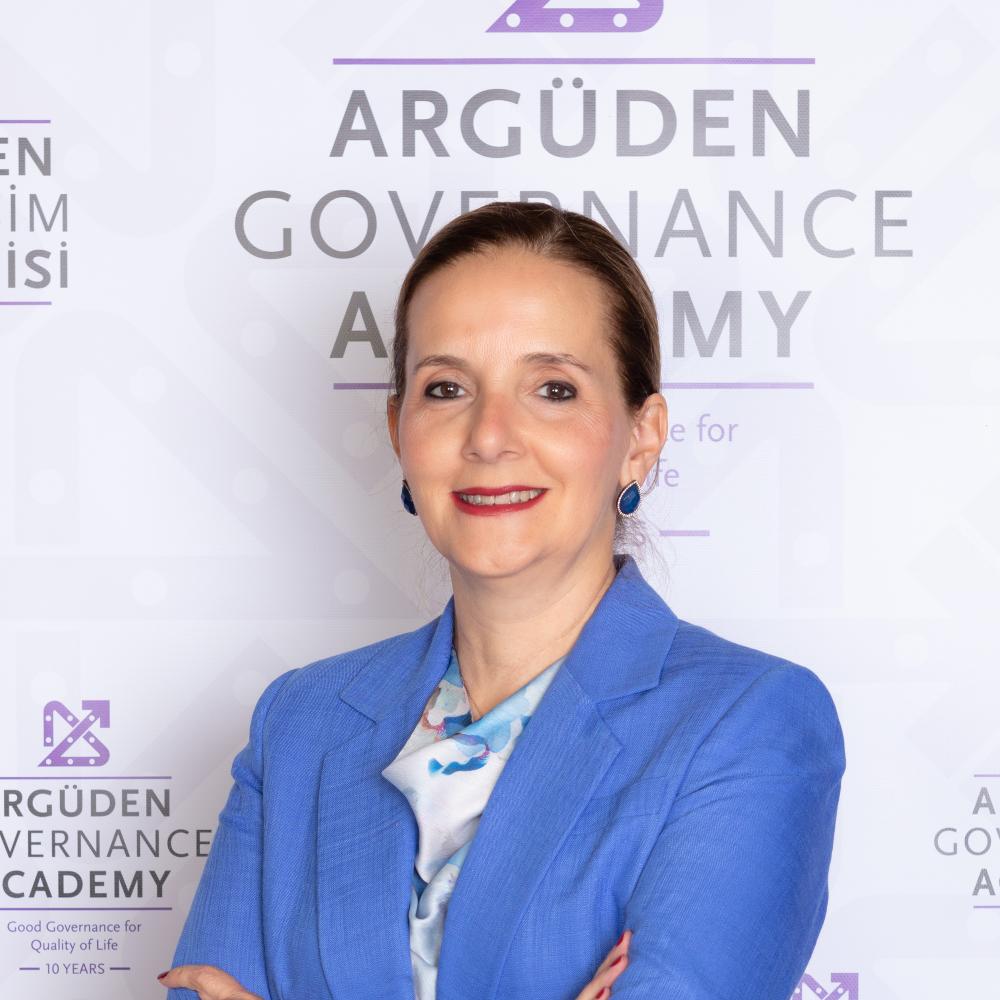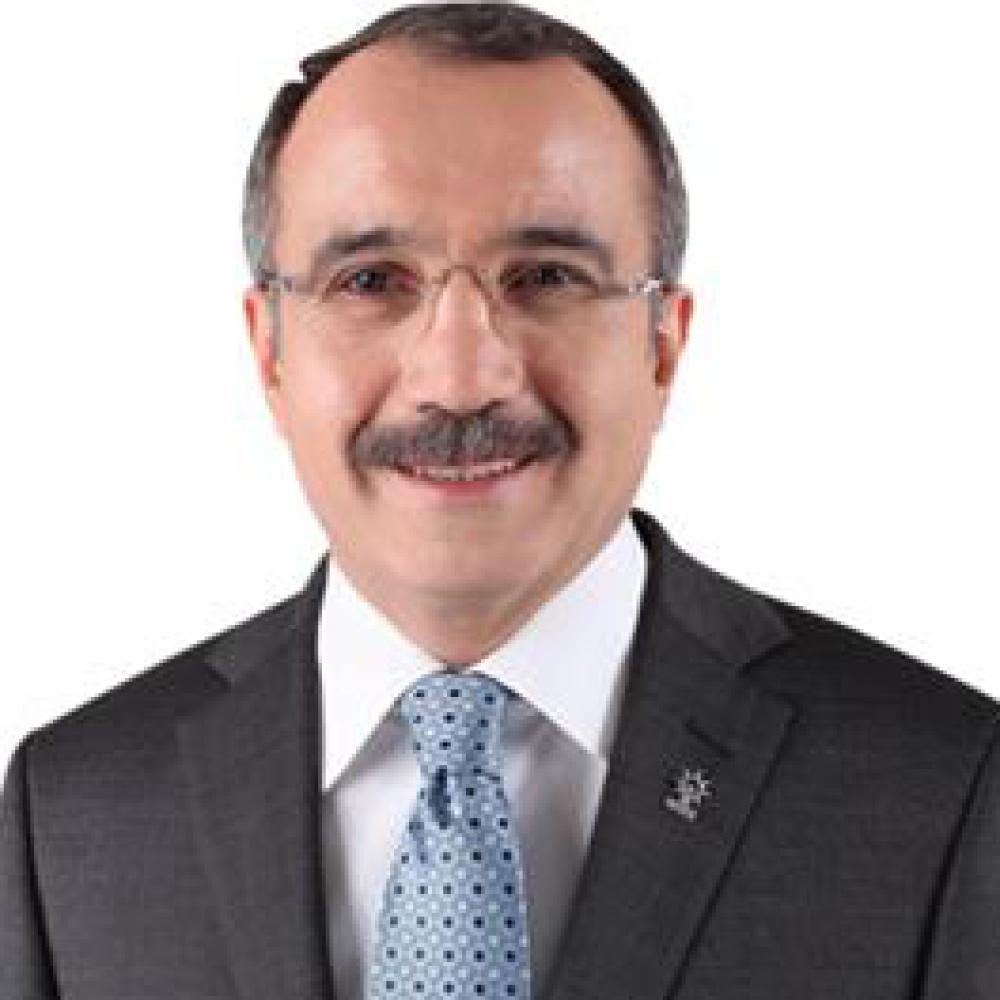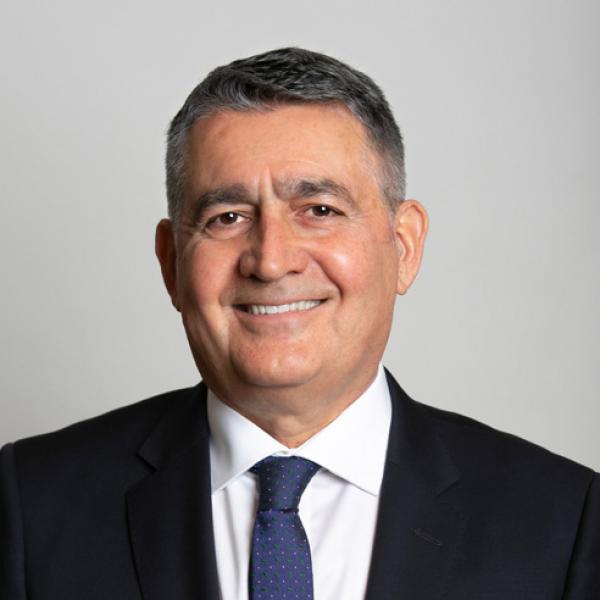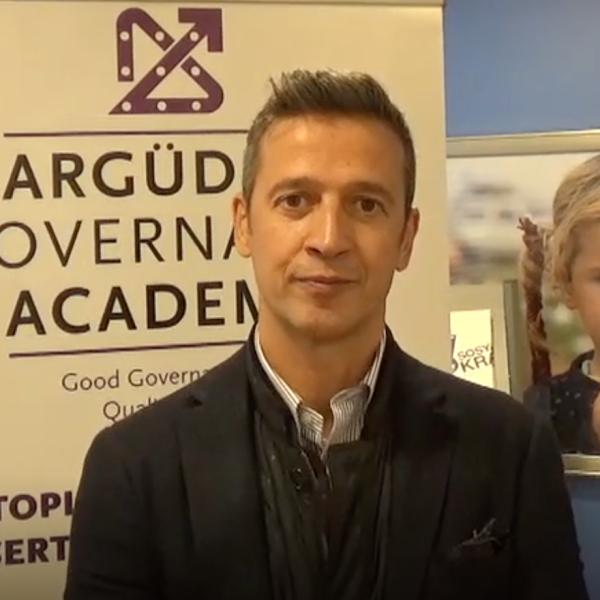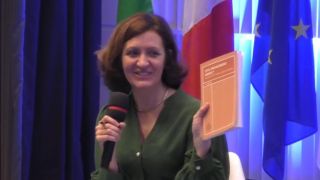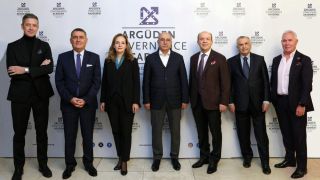On Tuesday, November 5, 2024, from 10:00 to 12:30, we gathered with leaders from the public sector, civil society, and the private sector at the Pera Museum to explore in depth the role and application of good governance principles in building a culture of trust. Additionally, we shared with participants the core principles and operational structure of the Civil Engagement Model© (CEM), a framework that systematically guides institutions in alignment with good governance principles and helps establish trust by assessing the quality of processes.
Highlights from the Opening Speeches: A Culture of Trust and Effective Collaborations
The opening speeches of the event were delivered by Prof. Dr. Metin Çakmakçı, Chairman of the Board of Argüden Governance Academy, and Orhan Turan, Chairman of the Board of the Turkish Industry and Business Association (TÜSİAD).
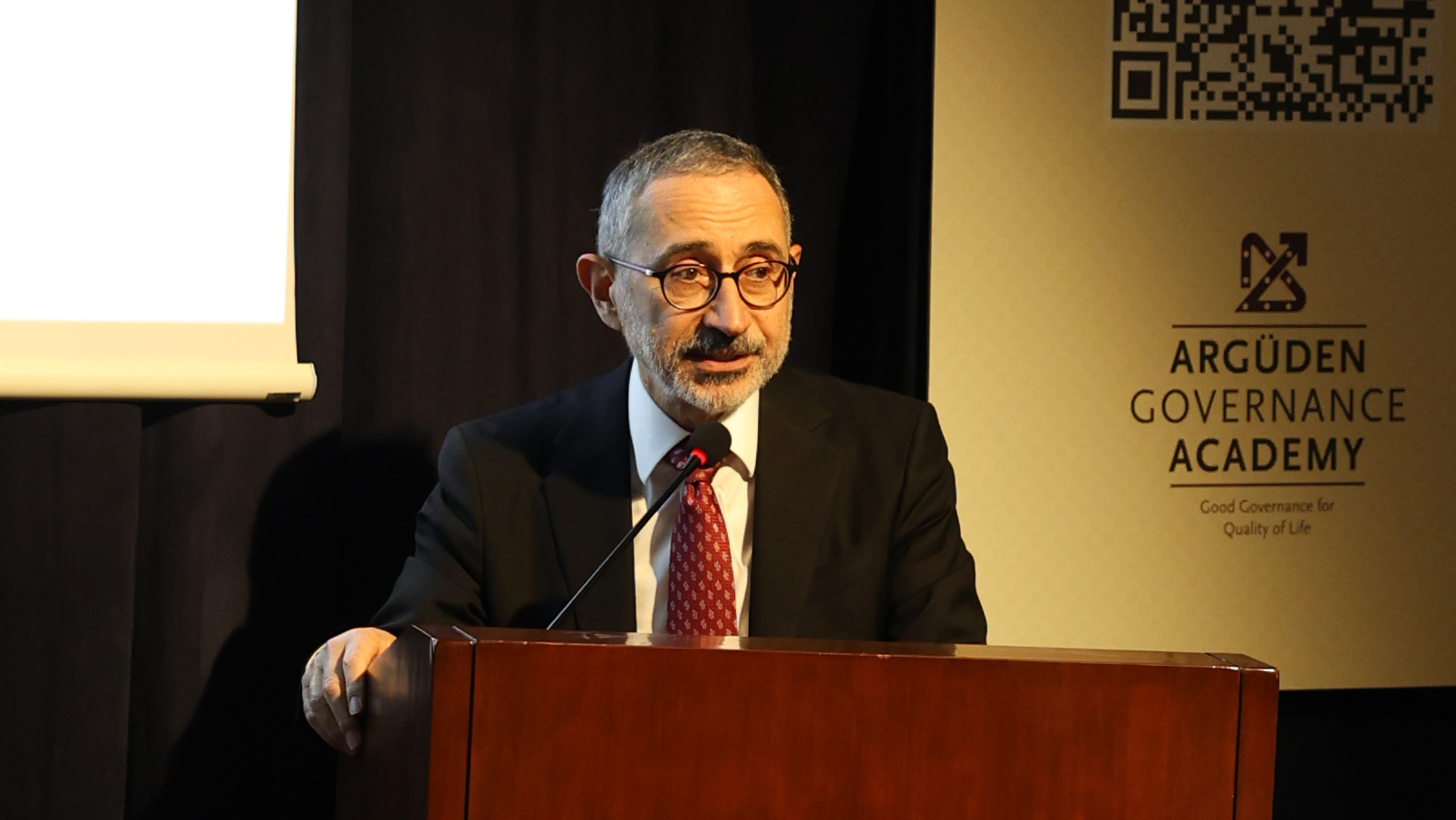
Prof. Dr. Metin Çakmakçı, Chairman of Argüden Governance Academy
In his speech, Prof. Dr. Metin Çakmakçı emphasized that when citizens' trust in institutions that most closely determine their living environment increases, so does their life satisfaction, well-being, and social cohesion. He pointed out that in recent years, the importance of building trust to strengthen democracy has become a priority for international organizations. Prof. Çakmakçı cited examples from the 2024 World Economic Forum in Davos and the OECD’s 2024 Trust Survey, and reminded the audience that the Nobel Memorial Prize in Economic Sciences was awarded to Daron Acemoğlu and his friends for their work on trust in institutions.
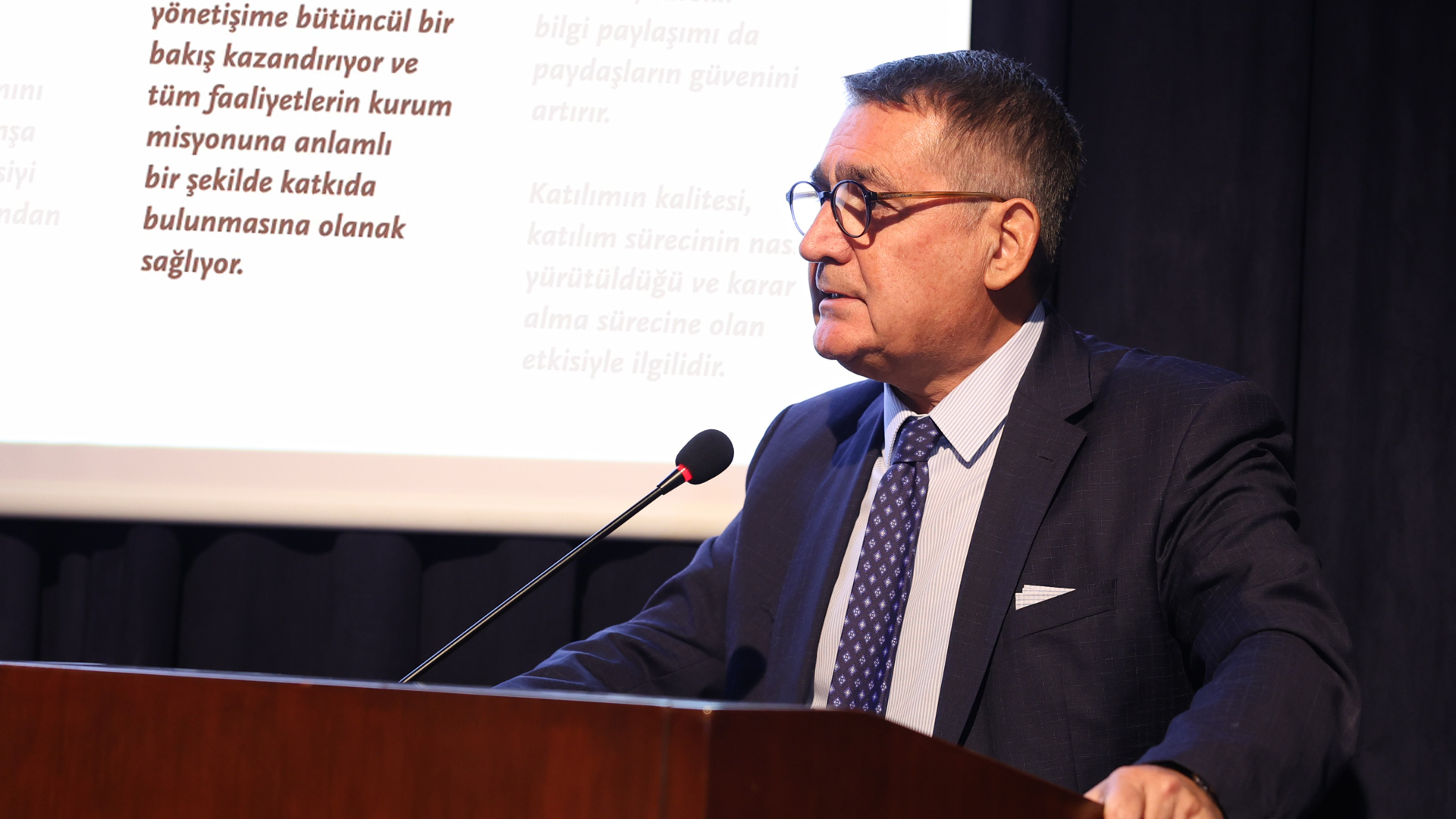
Orhan Turan, Chairman of Turkish Industry and Business Association
In his opening speech, Orhan Turan stated that effective collaborations would increase the sense of trust in society. He highlighted that cooperation between the public sector, civil society, and the private sector would not only facilitate the resolution of problems but also enhance participatory democracy, thereby strengthening trust in the governments.
Civil Engagement Model© to Strengthen Trust
In her presentation titled Civil Engagement Model©: Building Trust through Good Governance, Pınar Ilgaz, Vice Chair of the Board of Argüden Governance Academy, introduced the Civil Engagement Model©. This Model systematically guides institutions in line with good governance principles and contributes to building trust by measuring the quality of processes.
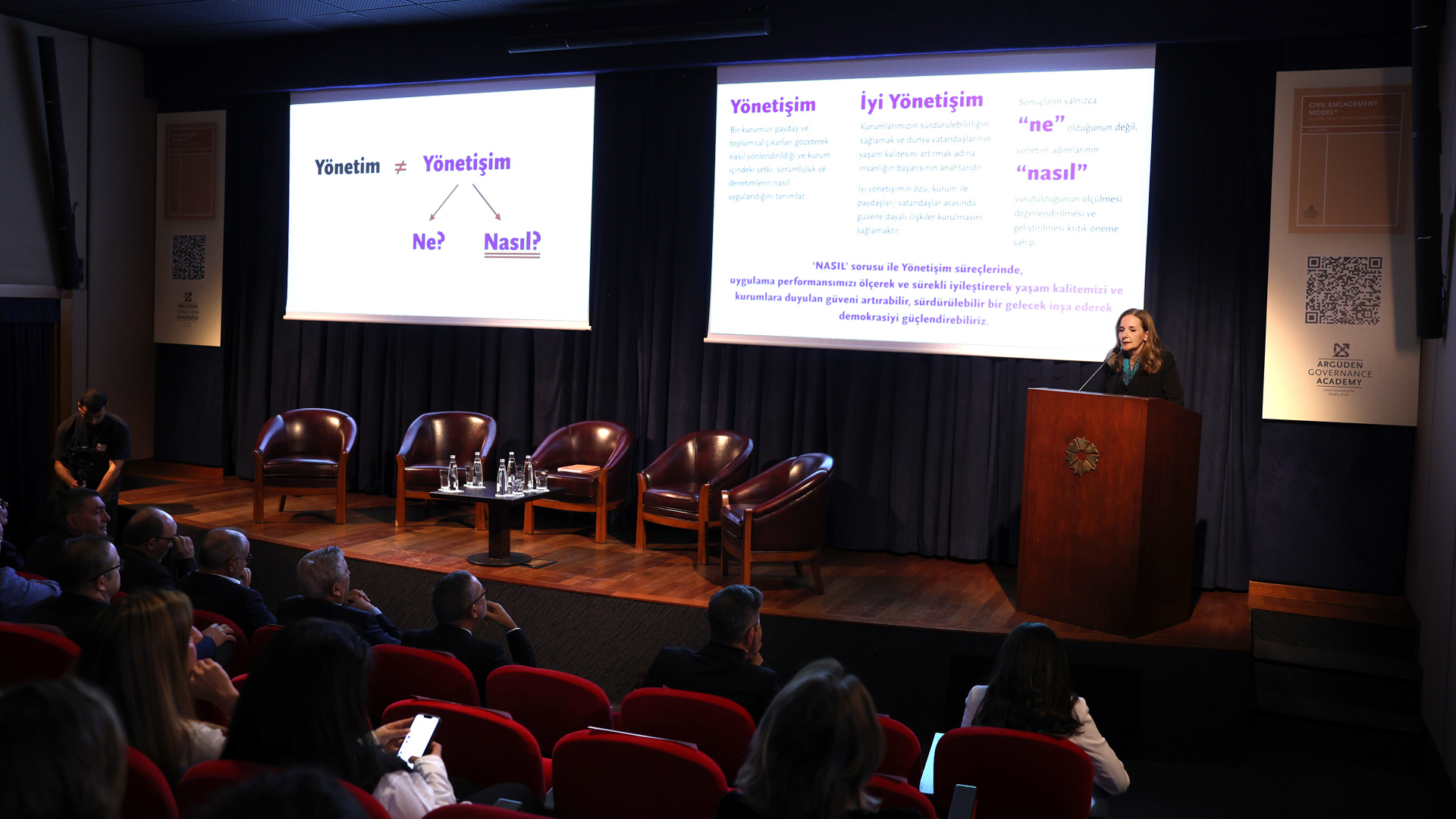
Pınar Ilgaz, Vice-Chair of the Board of the Argüden Governance Academy
Building Trust through Good Governance Panel
Guests from the public sector, civil society, and the private sector, including former Prime Ministry Undersecretary and Minister of National Education (2011–2013) Prof. Ömer Dinçer, Chairman of the Board of UN Global Compact Türkiye Ahmet Dördüncü, Chairman of the Representatives Council of the Third Sector Foundation of Türkiye (TUSEV) Erdal Yıldırım, Trustee of the Turkish Economic and Social Studies Foundation (TESEV) and Good Governance Advisor Fikret Toksöz, and Chairman of the Board of Argüden Governance Academy Dr. Yılmaz Argüden, participated in the Good Governance for a Culture of Trust Panel, moderated by Dr. Argüden.
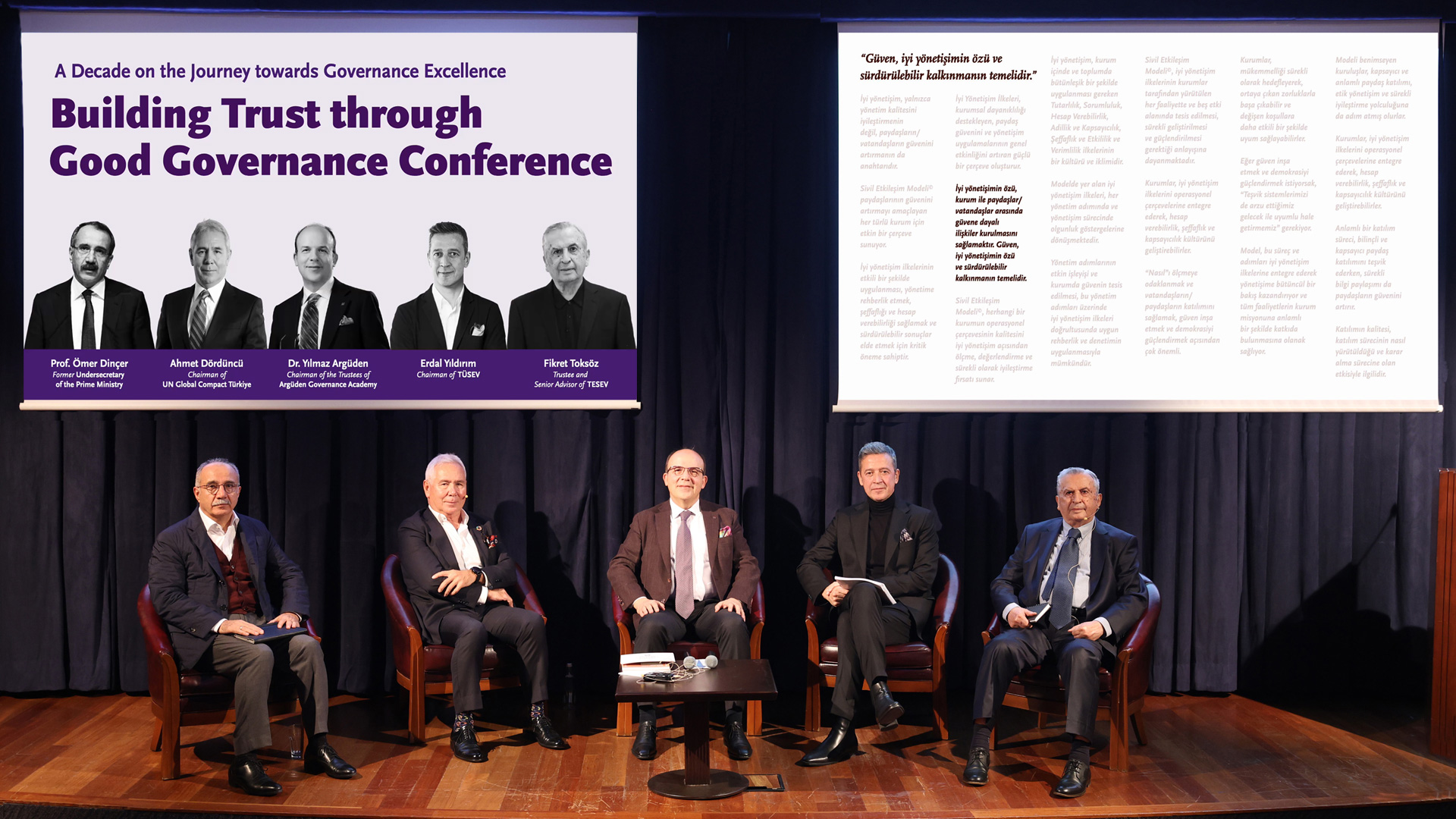
From left to right: Prof. Ömer Dinçer, Ahmet Cemal Dördüncü, Dr. Yılmaz Argüden, Erdal Yıldırım, Fikret Toksöz
During the panel, panelists highlighted the importance of good governance in the trust-building process, as well as its benefits for democracy, sustainable development, quality of life, and corporate reputation.
When Dr. Argüden asked Prof. Ömer Dinçer about the role of good governance in building trust between the government and citizens, while emphasizing the responsibilities of both public actors and citizens, Prof. Dinçer responded, “A robust democracy flourishes in an environment where individuals' voices are heard, their demands are acknowledged, and their concerns are resolved. Thus, implementing good governance practices not only safeguards today’s social peace and stabilization but also fosters future democratic resilience and social harmony.”
Ahmet Dördüncü, who has held senior positions in major private sector organizations and led civil initiatives such as Global Compact Türkiye, the 30% Club, and the TÜSİAD Honorary Council, emphasized the important roles private sector organizations play in spreading trust throughout society. He shared this message: “Good governance is not merely a management model; it is a framework of principles that encompasses elements such as transparency, accountability, inclusiveness, and ethical values that build trust. Effectively establishing and internalizing the concept of good governance within institutions is essential for fostering long-term corporate trust and achieving sustainable success. As UN Global Compact Türkiye, we provide training, resources, and tools to assist companies in implementing good governance practices. Large companies play a vital role in advancing the understanding of good governance throughout all sectors. The Transformational Governance Self-Assessment Tool serves as a guide for companies on how to begin this journey.”
Erdal Yıldırım, who has held leadership roles in civil society organizations such as BÜMED and the Koç Foundation, and is currently the Chairman of the Third Sector Foundation of Türkiye, emphasized the importance of meaningful collaborations in civil society. He stated, “Civil society organizations play a crucial role in building public trust by embedding good governance principles –like transparency and consistency– into their operations. Trust is a key factor that shapes the enduring impact of these organizations on society. To create a sustainable social impact, NGOs must communicate effectively, ensuring that their work is both visible and well-understood. By openly addressing societal issues and engaging in solutions with genuine intent, civil society organizations can reinforce the trust that is foundational to their mission.”
Fikret Toksöz, with his extensive experience ranging from the public sector to civil society and local governments to independent think tanks, remarked, “Assessment is the first step toward learning and growth. Accurately identifying issues and challenges is essential when assessing progress. In local governance, assessment is particularly challenging in three key areas: zoning plans, employment, and procurement practices. Sound evaluation in these areas is critical to fostering a more transparent and accountable approach to governance. Additionally, strengthening participatory democracy is vital to these efforts, as it empowers communities to engage more actively in decision-making processes, helping to achieve these governance goals.”
Related People














